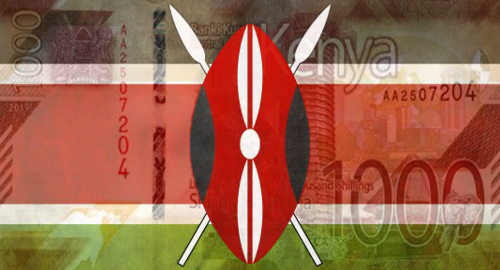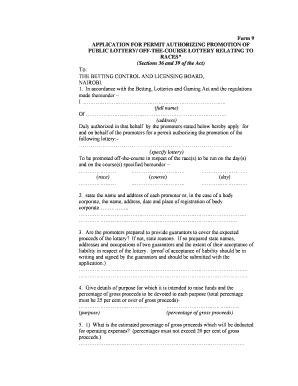Gambling License Cost In Kenya
- Gambling License Cost In Kenya Government
- Gambling License Cost In Kenya State
- Gambling License Cost In Kenya Today
- Gambling License Cost In Kenya Shillings
Opening a bar? This primer on the complicated licensing process will help you along in your journey from patron to publican…
While nursing a cocktail at the end of a sluggish workweek, one bored office worker turns to her friend, another bored office worker, and says, “We should open a bar.” “Yes!” the friend replies.
They’ve had this conversation before, but they’re serious this time. However, they soon realize that opening a bar isn’t so simple. In fact, they’ll have to navigate a costly maze of red tape before ever tapping into any kegs.
Casino operators pay just 1% on their total gaming revenue. The first Lotto Act in Malta dates all the way back to 1922. Gambling is now regulated by the Lotteries and Gaming Authority who issue licenses to land-based and online casinos. Casinos pay a €46,000 licensing fee and an additional 15-40% of their gross turnover. In fact, bars must acquire licenses from performance rights organizations, or PROs, such as BMI, ASCAP, or SESAC in order to legally play music. While this may not seem important, playing unlicensed music can cost a business six figures in fines. However, it’s not just playing recorded music that requires a license.
While specific regulations vary by state and municipalities, there are a few steps would-be bar owners must take on their journey to opening. Here are the key licenses and permits you need to open a bar.
Business permit, certificate of occupancy, and EIN
The first absolutely fundamental certificate any prospective bar owner needs is a business permit. Very simply, this permit grants permission to operate a business. The second is a certificate of occupancy, which certifies that the building itself has been properly maintained and can safely host guests. The third is an Employer Identification Number (EIN,) which is necessary for taxation.
Liquor and food service license

While the abovementioned licenses are a necessity for all businesses, there is a fundamental certificate unique to this industry—the liquor license. Procuring one, however, is much easier said than done. The first step is to consider exactly what you plan to serve, since beer and wine bars may require a different license than a fully stocked operation. It’s also critical to know that a food service license won’t necessarily cover the sale of liquor, so if the bar is food-centric, additional legwork will likely be required.
Name registration and protection
Signage isn’t all that’s required to get one’s name out there. In fact, once the bar name is decided, you should register it as an entity name for protection at the state level and as a trademark for protection at the federal level. This way, would-be copycats can’t steal your intellectual property. You may also need to register a DBA (Doing Business As), which allows entrepreneurs to conduct business under a different identity than their own. Lastly, in today’s business climate, a web presence is vital. Register your business’ domain name as well.
Entertainment & music license
Music is a great way to create atmosphere in a bar. But, legally speaking, you can’t just plug your iPod into the PA system and play whatever they want. In fact, bars must acquire licenses from performance rights organizations, or PROs, such as BMI, ASCAP, or SESAC in order to legally play music. While this may not seem important, playing unlicensed music can cost a business six figures in fines. However, it’s not just playing recorded music that requires a license. Additional safety and zoning permits will likely be required for bars that wish to feature live music. It should be noted, too, that “entertainment” is a loose term—in some places, you may even need a pool table license.
Again, the necessary licenses and permits associated with opening a bar vary state-to-state and even town-to-town. So for additional resources, be sure to consult the Small Business Administration. What other licensing hurdles have you run into in your own journey toward opening a bar? Let us know in the comments.
Gambling License Cost In Kenya Government
The Kenya government and gambling operators in the country have been at loggerheads for the last few months as the government believes casino operators are not complying with their regulations. One of the biggest factors that has upset the Kenyan government is that it was able to collect only in gaming taxes when casino operators made a combined total of Sh204 billion.

Casino operators in Kenya were supposed to have their licenses renewed by July 1, 2019. However, that hasn’t happened as the Betting Control and Licensing Board (BCLB) decided to send a strong message by cancelling a number of licenses and deferring the renewal of some licenses indefinitely.
The tough stance taken by the BCLB has impacted will impact 19 casino operators who have had their licenses cancelled. The BCLB decided to indefinitely defer the licenses of 8 casino operators which will impact 6 lotteries and 13 casinos.
Gambling License Cost In Kenya State
Betin which is one of the biggest casino operators in Kenya was one of those companies that had their license cancelled. The company has decided to take the legal route and see if it can get that decision overturned.
While the licenses of these casino operators have either been cancelled or deferred indefinitely, it hasn’t stopped them from continuing to offer services in Kenya which technically makes it an illegal operation.
The Kenyan government will continue to impose stringent measures to shake casino operators. The next move is a crackdown on the top management of these betting firms in the country. There are reports that the top bosses of these gambling firms will be asked to leave the country shortly.
Gambling License Cost In Kenya Today

Government Cites Problem Gambling
The government has chosen to place the emphasis on the growing concern of problem gambling numbers in the country for its tough stance. A recent GeoPoll survey shows that more than 40 percent of low income Kenyan gamblers do not have a job and another 27 percent are students.
Kenya is the third biggest betting market in Africa and is expected to generate as much as Sh500 billion by the end of 2020. The government stands to lose a lot if it closes its gambling industry as employment opportunities, tax revenue and foreign investment will be lost.
Casino operators in Kenya have so far not responded to the government’s reluctance to renew their licenses.
Gambling License Cost In Kenya Shillings
Carolyn is our legislation expert, with a background in law she is able to cover the current state of gambling around the world